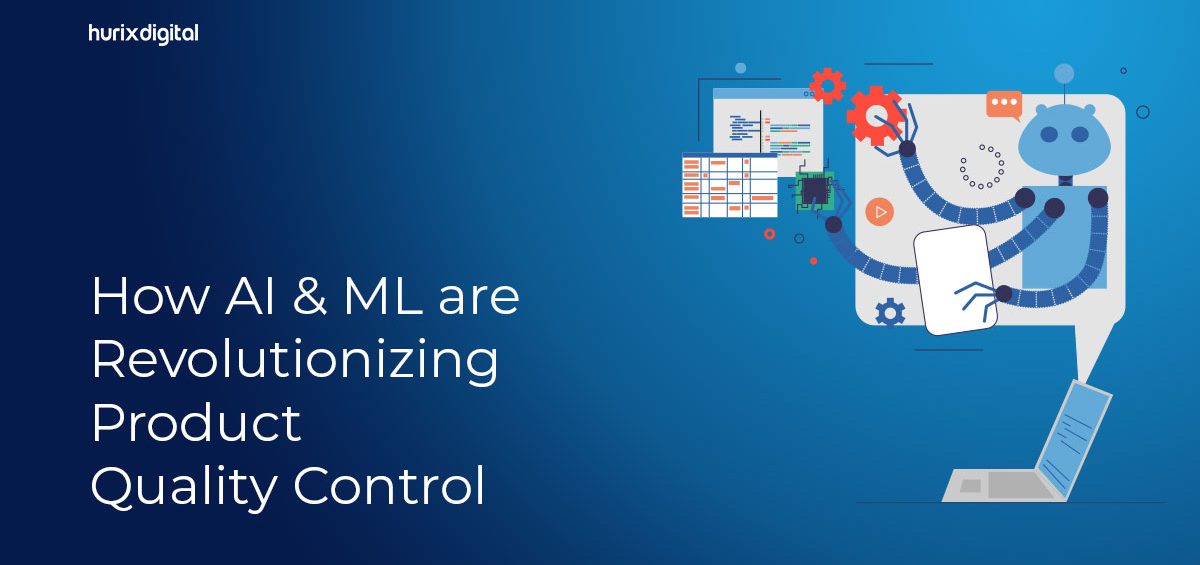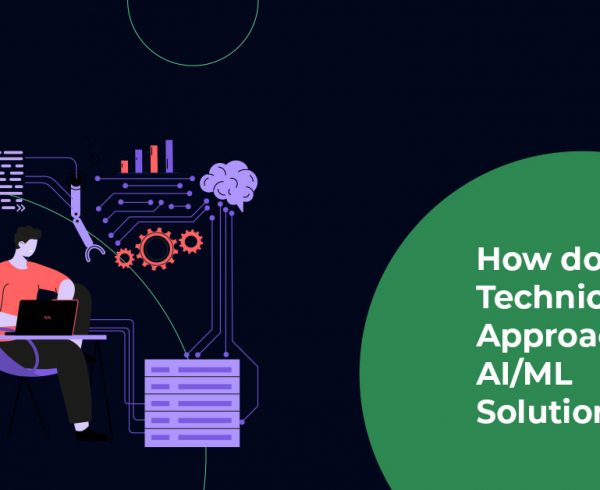Summary
This article provides an overview of how AI and machine learning are revolutionizing product quality control processes. It highlights the benefits of using AI and ML for quality control and quality assurance.
Artificial intelligence (AI) has ushered in a new era of industrial technology. The application of artificial intelligence and machine learning (ML) processes is becoming increasingly prevalent in almost all business areas.
One such area is quality control and quality assurance. When it comes to product quality and reliability, AI and ML are proving to be valuable tools for ensuring the same.
AI technology has infused the power of automation with quality control procedures. This has opened up several opportunities for innovative transformation and efficiency enhancement.
Let’s get an insight into how AI and machine learning are revolutionizing product quality control.
Table of Contents:
- Challenges Associated with the Traditional Quality Control Approach
- Leveraging AI and ML for Automated Quality Control
- Detecting Anomalies and Deviations
- Upholding Quality Standards
- Ensuring Increased Efficiency
- Analyzing the Root Cause of Defect
- Enabling Easy Integration and High Scalability
- Improving Customer Satisfaction
What is AI in Quality Assurance?
Artificial intelligence serves as a powerful tool for quality control and quality assurance. AI evaluates the quality of services and products across various industries and identifies defects. It carries out accurate and extensive inspections in real time.
Artificial intelligence in quality assurance applies machine learning techniques and deep learning algorithms to detect defects. It provides insights that enable enterprises to improve quality control processes and enhance efficiency.
Also Read: AI & Accessibility: Is AI-Generated Content Bad for Accessibility?
How is AI Impacting Quality Control and Quality Assurance Systems?
When it comes to quality control and quality assurance systems, AI has been showing much potential in transforming them. As AI-empowered technologies continue to evolve, they are revolutionizing the way these systems are functioning.
Here’s how AI machine learning is impacting quality control and quality assurance systems:
1. Improvement in Speed
There’s no denying that speed is one of the greatest advantages of digital transformation. As far as AI-empowered technologies are concerned, they are improving the speed of quality control processes.
By streamlining processes, automating tasks, and eliminating the risk of human error, they are offering the advantage of time.
2. Increase in Accuracy
Accuracy is of vital importance in quality assurance as it ensures that the results are reliable. AI-empowered technologies are increasing accuracy in quality assurance processes.
With the application of AI and ML algorithms in different stages of production, anomalies are getting detected and flagged in real-time. This helps quality control professionals to identify and resolve quality issues before they can impact the final product.
3. Optimization of Processes
Optimization in quality control leads to an increase in efficiency. AI-driven technologies are optimizing quality control by automating the testing and inspection processes.
Further, AI-driven analytics are offering insights for the identification of areas of improvement in such processes.
Challenges Associated with the Traditional Quality Control Approach
The traditional or manual approach to quality control is quite complicated and involves several challenges. Some of the major challenges are as follows:
- This approach to quality control relies on human experience and expertise. However, every engineer involved in quality control may not have the required level of competence and experience.
- It’s quite common for more than one issue to impact production simultaneously. In such a situation, detecting the point of failure manually often becomes difficult.
- Identifying every issue and reviewing every item manually is a tedious process that demands a lot of time and effort.
- Suppose a business enterprise has multiple production sites. It may become difficult to track production defects across all the sites with equal efficiency.
Also Read: Differences Between Quality Assurance and Quality Control
Leveraging AI and ML for Automated Quality Control
As technology continues to evolve, AI and machine learning are revolutionizing quality control processes.
Some of the ways to leverage AL/ML in automated quality control are as follows:
1. Detecting Anomalies and Deviations
AI/ML solutions can identify and analyze patterns in data.
This can prove to be very useful for detecting anomalies or identifying deviations from the standards. It can lead to easy detection of vulnerable production aspects and predict failures.
2. Upholding Quality Standards
AI and ML algorithms can classify data as per a rule-based system and identify defects early on. This can ensure that the product quality doesn’t fall short of the expected standards.
3. Ensuring Increased Efficiency
AI and ML can detect anomalies through the use of computer vision algorithms and predictive maintenance.
As a result, quality control engineers can utilize their time to resolve the issues rather than look for defects manually. This can increase the efficiency of the whole process.
4. Analyzing the Root Cause of Defect
AI-empowered systems can identify defects and find out the root cause of the issue. If several defects occur, AI can track and analyze their sequence.
As a result, engineers can identify the exact portions of the value chain where the issues lie. They can then change those portions to improve efficiency and yield. In other words, they can prevent or minimize manufacturing defects.
5. Enabling Easy Integration and High Scalability
When it comes to AI-based systems, it is easy to deploy one system to varied production sites. This can enable an engineer to quickly pass on information about an emerging issue in one site to other sites.
An AI-based system can even accumulate and integrate data from all such sites to enhance prediction.
6. Improving Customer Satisfaction
AI-led quality assurance systems can analyze customer data and point out the areas where improvements can be made. Such improvements can enhance customer experience and improve customer satisfaction. This, in turn, can help in customer retention.
Conclusion
Artificial intelligence has emerged to be a highly effective and powerful tool for quality control and quality assurance. AI-based systems are empowering business enterprises to detect and resolve any potential quality issues.
AI, along with ML, enables businesses to meet desirable production standards and aim for customer satisfaction. By leveraging AI and ML, companies can increase efficiency while reducing cost and effort.
If you are looking for reliable and efficient quality assurance services, we can help you out. At Hurix Digital, we create intelligent processes to boost your business growth. Our team of experts can help you to meet your QA requirements.
To know more, please contact us here.







